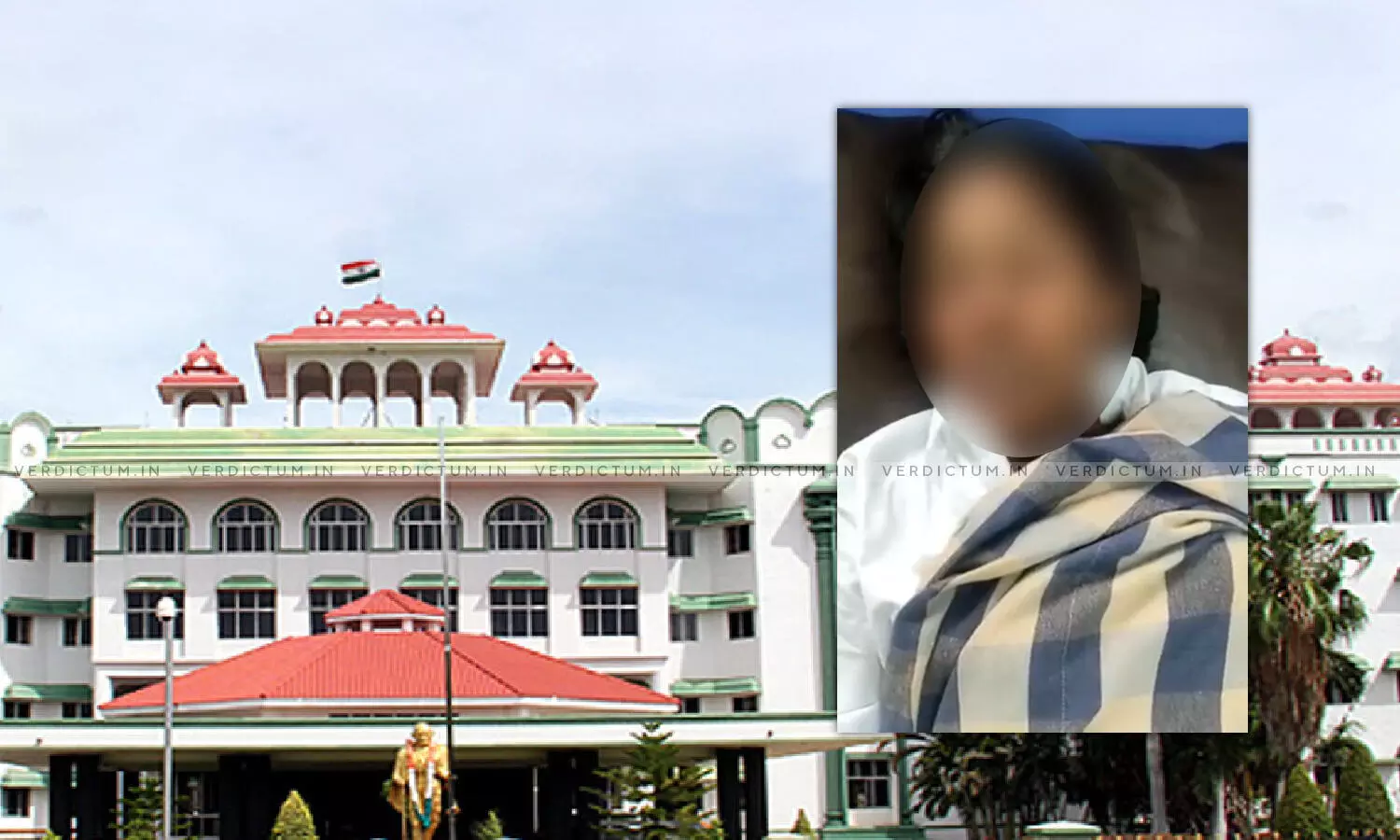
5 Reasons Why Madras High Court Ordered CBI Probe Into The Forced Conversion-Suicide Case
 |
|Here are the 5 reasons why the Madras High Court transferred investigation into the Tamil Nadu forced conversion-suicide case to the CBI from the State Police:-
1. SP of Thanjavur District Ravali Priya, I.P.S. held a press conference and ruled out conversion angle
SP Ravali Priya held a press conference asserting that the conversion angle was not made out in the preliminary enquiry. The Court holds that such a statement was unwarranted because by then the video was already in circulation and the parents of the child had given a complaint alleging an attempt to convert the child to Christianity. "The Superintendent of Police probably forgot the virtues of silence", says the Court. The Court holds that "By stating that the conversion angle stood ruled out, the Superintendent of Police had brushed aside the petitioner's complaint made in writing and backed by the video of the child."
2. Police registered FIR for offences of provocation for rioting, public mischief etc. when parents produced the video
SP directed officials to register an FIR against the person who had taken the video and an FIR under Sections 153, 504, 505(1)(b) and 505(2) of IPC was registered. By its interim order, the Court had warned the Police not to harass the person who had taken the video and instead focus on bringing out the truth behind the suicide. "Inclusion of the said offences indicates that the Superintendent of Police wanted to silence any discussion regarding the conversion angle", the Court holds. It adds that, "Her conduct during the press conference synchronises with the registration of Crime.." Later in the Judgment, the Court observes, "The S.P virtually threatened the person who shot the video. Instead, she should have goaded the investigation to take the religious angle into account".
3. Finding that there is nothing "inherently improbable" in the allegation that there was an attempt to convert
Court explains the social situation in Tamil Nadu in great detail, in the background of the School being one owned by a Christian Congregation. Court explains "Great Commission" by quoting from the Bible. Court elaborately quotes from a scene from the 2020 Hindi movie Serious Men. Court also narrates a part of the plot from the Tamil movie Kalyana Agathigal of 1985. Court refers to the name of the locality where the school is situated, Michealpatti and says, "Obviously it could not have been the original name. There is an interesting discussion as to how the various areas in Chennai acquired their respective names in V.Sriram's 'Chennai'".
Court refers to the judgment of the Supreme Court upholding the constitutionality of a law prohibiting forcible conversion and notes that a Member of Constitutional Assembly, Frank Anthony had argued against the constitutional validity of the law before the Court. "If one reads the views expressed by some of the Christian members of the Constituent Assembly, one would note that some of them had even batted for the right to convert even minor children", the Court observes.
(The Constituent Assembly was discussing a clause proposed by Sardar Patel - "Conversion from one religion to another brought about by coercion or undue influence shall not be recognised by law". K. M. Munshi proposed a modified clause instead- "Any conversion from one religion to another of any person brought about by fraud, coercion or undue influence or of a minor under the age of 18 shall not be recognised by law." Frank Anthony opposed the proposed bar on conversion of minors. "I say that if you have this particular provision, or if you place an absolute embargo on the conversion of a minor, you will place an embargo absolutely on the right of conversion. You will virtually take away the right to convert. Because, what will happen? Not a single adult who is a parent, however deeply he may feel, however deeply he may be convinced, will ever adopt Christianity, because, by this clause you will be cutting off that parent from his children." he argued. [read here])
4. High ranking Ministers of State expressed opinion in public prejudging investigation
The Court quotes the state Education Minister Anbil Poyyamozhi as saying about the enquiry- "They have made it clear that pressure to convert was not the cause" and about the video- "They had questioned her in a provocative manner and she had not given any clear-cut answer". The Court observes that apart from the Hon'ble Education Minister, two other high ranking Ministers have also expressed opinions on the same lines and that the Education Department has also come out with a statement exonerating the school management of the charge of conversion, the school being a government-aided school. The Court also notes that the I.T wing of the ruling party released portions of the private video that appear to exonerate the school authorities.
5. Police aided building of a counter-narrative that stepmother of the girl was responsible for her suicide
The Court holds that social media reports about Childline having received complaints two years ago about the girl being treated cruelly by her stepmother were a result of leaks that dent the credibility of the investigation. The Court also notes that police had sent summons to the maternal grandparents of the girl for getting statements adverse to the stepmother, to bolster the counter-narrative.